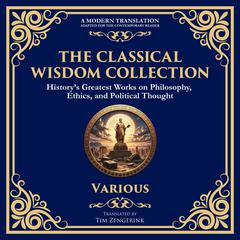 Play Audiobook Sample
Play Audiobook Sample
On Sophistical Refutations Audiobook
 Play Audiobook Sample
Play Audiobook Sample
Quick Stats About this Audiobook
Total Audiobook Chapters:
Longest Chapter Length:
Shortest Chapter Length:
Average Chapter Length:
Audiobooks by this Author:
Publisher Description
"On Sophistical Refutations" is a treatise by Aristotle that explores the nature of fallacious reasoning and how it can be identified and refuted. In this work, Aristotle presents a systematic approach to detecting and exposing errors in argumentation, particularly those that rely on equivocation or ambiguity in language. He examines a variety of sophistical arguments, including those based on language, form, and logical fallacies, and offers practical strategies for detecting and refuting them. Throughout the treatise, Aristotle emphasizes the importance of precise language and clear thinking in avoiding fallacies and arriving at sound conclusions. "On Sophistical Refutations" is a valuable resource for anyone interested in logic, rhetoric, or critical thinking, and has remained a seminal work in the field of philosophy for centuries. Read in English, unabridged.
Download and start listening now!
On Sophistical Refutations Listener Reviews
Be the first to write a review about this audiobook!
About Aristotle
Aristotle (384–322 BC) was a Greek philosopher, scientist, and physician. As a young man, he became a student under Plato in Athens. In 342, he became the tutor of young Alexander the Great in Macedonia. After that, Aristotle returned to Athens to establish his own school and research institute, the Lyceum. His writings have profoundly affected the whole course of philosophy, from ancient times to the present.






















